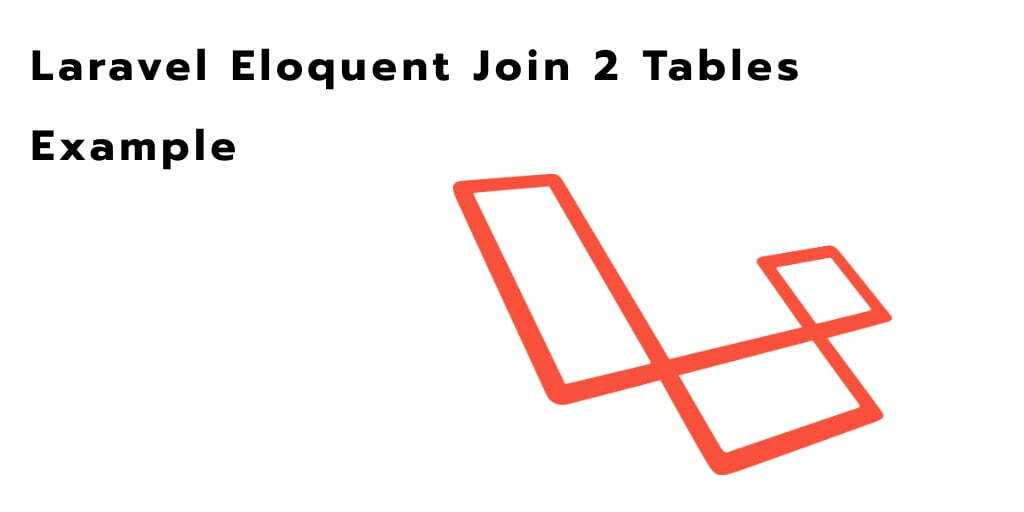Laravel eloquent join 2,3,4 or multiple tables example. Through this tutorial, you will learn how to join 2,3,4 or multiple tables for fetching data from database tables in laravel.
And As well as how to use laravel eloquent join() with multiple where conditions.
If you want to join two or multiple tables in laravel to fetch data from multiple tables using Eloquent join. Then you can use laravel eloquent join(), left join(), right join(), cross join(). And another option is to join two or multiple tables, you can use laravel eloquent relationships instead of laravel join.
Note that, you can also join two or multiple tables using laravel left, rigth and cross join.
Laravel Eloquent Join 2,3,4 Tables Example
Laravel JOIN eloquent returns all rows from both table, if there are matches in the both table. Otherwise, the result is NULL.
Now, demonstrates laravel eloquent join with the following examples. You can see the following example of laravel eloquent join() method:
Example 1: Laravel Eloquent Join() with 2 Tables
Here, fetch data using laravel eloquent join(), you can see the following example:
$users = User::join('posts', 'users.id', '=', 'posts.user_id')
->get(['users.*', 'posts.descrption']);
When you dump the above-given laravel eloquent join query, you will get the following SQL query:
select `users`.*, `posts`.`descrption` from `users` inner join `posts` on `users`.`id` = `posts`.`user_id`
Example 2: Laravel Eloquent Join() with 3 Tables
In this example, get data using laravel eloquent join 3 table, you can see the following example:
$users = User::join('posts', 'posts.user_id', '=', 'users.id')
->join('comments', 'comments.post_id', '=', 'posts.id')
->get(['users.*', 'posts.descrption']);
When you dump the above-given laravel eloquent join 3 table query, you will get the following SQL query:
select `users`.*, `posts`.`descrption` from `users` inner join `posts` on `posts`.`user_id` = `users`.`id` inner join `comments` on `comments`.`post_id` = `posts`.`id`
Example 3: Laravel Eloquent Join() with Multiple Conditions
In this example, get data using laravel eloquent join with multiple where conditions, you can see the following example:
$users = User::join('posts', 'posts.user_id', '=', 'users.id')
->where('users.status', 'active')
->where('posts.status','active')
->get(['users.*', 'posts.descrption']);
When you dump the above-given laravel eloquent join with multiple conditions query, you will get the following SQL query:
select `users`.*, `posts`.`descrption` from `users` inner join `posts` on `posts`.`user_id` = `users`.`id` where `users`.`status` = active and `posts`.`status` = active
In another option instead of join laravel, you can use laravel relationship, once you created laravel relationship it will work like join.
There are many type of relationship in Laravel:
Conclusion
Laravel eloquent join() example tutorial, you have learned how to use laravel eloquent join() and as well as how to use laravel eloquent join() with multiple conditions.
